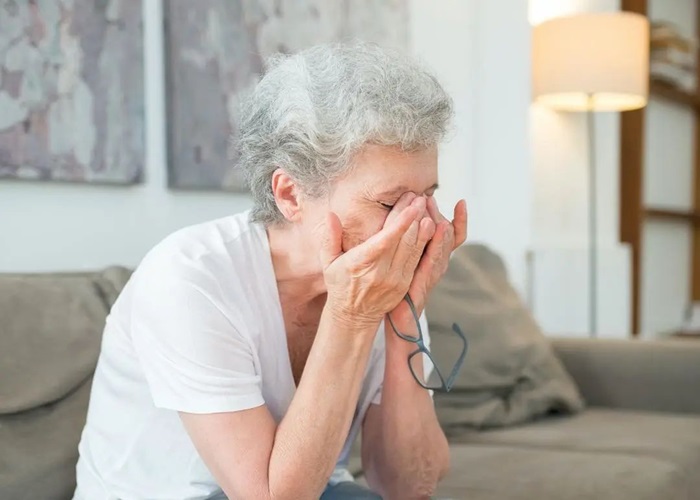Premenopause is the stage in a woman’s life before menopause begins. During this time, the body starts to change slowly. These changes can affect the menstrual cycle, mood, and overall health. Many women wonder what signs to look for. This article will explain the common signs of premenopause in simple terms. Understanding these signs can help women feel more prepared and less confused about what’s happening in their bodies.
What Is Premenopause?
Premenopause is the time when a woman still has regular periods but starts to experience early changes in hormones. It usually begins in the 30s or 40s, but it can start earlier or later. The ovaries are still working, but hormone levels may start to rise and fall in an uneven way.
What Are the Signs of Premenopausal?
1. Irregular Periods
One of the most common signs is changes in the menstrual cycle. Periods may become shorter or longer. The flow may be heavier or lighter than usual. Sometimes, a woman may skip a period and then get it again the next month. These changes happen because hormone levels, especially estrogen and progesterone, start to fluctuate.
2. Hot Flashes
Hot flashes feel like a sudden wave of heat in the body. They may last a few seconds or several minutes. Some women also feel their face or chest turning red. This is caused by changes in blood flow and body temperature regulation due to lower estrogen levels.
3. Night Sweats
Night sweats are hot flashes that happen during sleep. A woman may wake up drenched in sweat and feel cold after. Night sweats can disturb sleep and make it hard to feel rested in the morning.
4. Mood Swings
Premenopausal women may feel more emotional than usual. They might feel sad, anxious, or angry without a clear reason. These mood swings are linked to hormone changes that affect the brain and emotions.
5. Sleep Problems
Some women have trouble falling asleep or wake up often during the night. Hormone changes and night sweats can make it hard to get good sleep. Lack of sleep can also increase mood swings and tiredness during the day.
6. Lower Sex Drive
Premenopause can affect sexual desire. Many women notice they are less interested in sex. This can be due to lower hormone levels, tiredness, or vaginal dryness.
7. Vaginal Dryness
As estrogen levels drop, the lining of the vagina becomes thinner and drier. This can cause discomfort during sex and even daily activities. Some women may also feel itching or burning.
8. Urinary Problems
Women in premenopause may experience more frequent urination or a higher chance of bladder infections. This happens because the tissues in the urinary tract also change with lower estrogen levels.
9. Weight Gain
Some women gain weight more easily during premenopause, especially around the stomach. Changes in metabolism and lower activity levels can also play a role.
10. Headaches or Migraines
Hormonal changes can trigger headaches or make migraines worse for some women. These often happen around the time of a period.
How Long Does Premenopause Last?
Premenopause can last for several years. For most women, it starts in their 40s and lasts until menopause, which is when periods stop completely. On average, menopause happens around age 51. Premenopause is different for everyone. Some women may notice many symptoms, while others may have very few.
How Do You Know It’s Premenopause and Not Something Else?
Because some signs of premenopause are similar to other health problems, it’s important to talk to a doctor. A blood test can check hormone levels and help confirm if you are in premenopause. The doctor may also check other causes of symptoms, such as thyroid problems or stress.
What Can You Do About Premenopausal Symptoms?
1. Healthy Diet
Eating a balanced diet with fruits, vegetables, whole grains, and lean proteins can help. Foods rich in calcium and vitamin D are good for bone health, which is important during hormone changes.
2. Exercise
Regular physical activity can improve mood, help control weight, and improve sleep. Walking, swimming, or yoga are good choices.
3. Good Sleep Habits
Try to go to bed and wake up at the same time every day. Avoid caffeine and alcohol before bed. Keeping your bedroom cool can help reduce night sweats.
4. Stress Management
Deep breathing, meditation, and spending time with loved ones can help reduce stress. Lowering stress can also help manage mood swings.
5. Talk to a Doctor
If symptoms are strong or affect your daily life, a doctor may suggest hormone therapy or other treatments. There are also creams and lubricants for vaginal dryness and medications for sleep or mood problems.
Should You Worry About Premenopause?
Premenopause is a natural part of aging. It is not something to fear. Knowing the signs can help you prepare and take better care of yourself. With the right information and support, many women manage premenopause well.
When Should You See a Doctor?
You should see a doctor if:
- Your periods stop suddenly before age 40.
- You bleed very heavily or between periods.
- You feel depressed or anxious often.
- You have pain during sex that does not go away.
- You have trouble sleeping every night for a long time.
A doctor can help you understand what’s going on and suggest the best ways to feel better.
Conclusion
Premenopause brings many changes, but knowing the signs makes it easier to handle. Irregular periods, hot flashes, mood swings, and sleep problems are all common signs. These changes happen because hormone levels begin to shift. Every woman experiences premenopause differently. If you notice new or uncomfortable symptoms, it’s a good idea to talk to your doctor. With healthy habits and the right care, you can feel confident and strong during this stage of life.
Related topics:
- What Are the Signs of Premenopausal?
- 6 Symptoms Of High Estrogen Levels After Menopause
- Effective Strategies for Belly Weight Loss in Premenopausal


